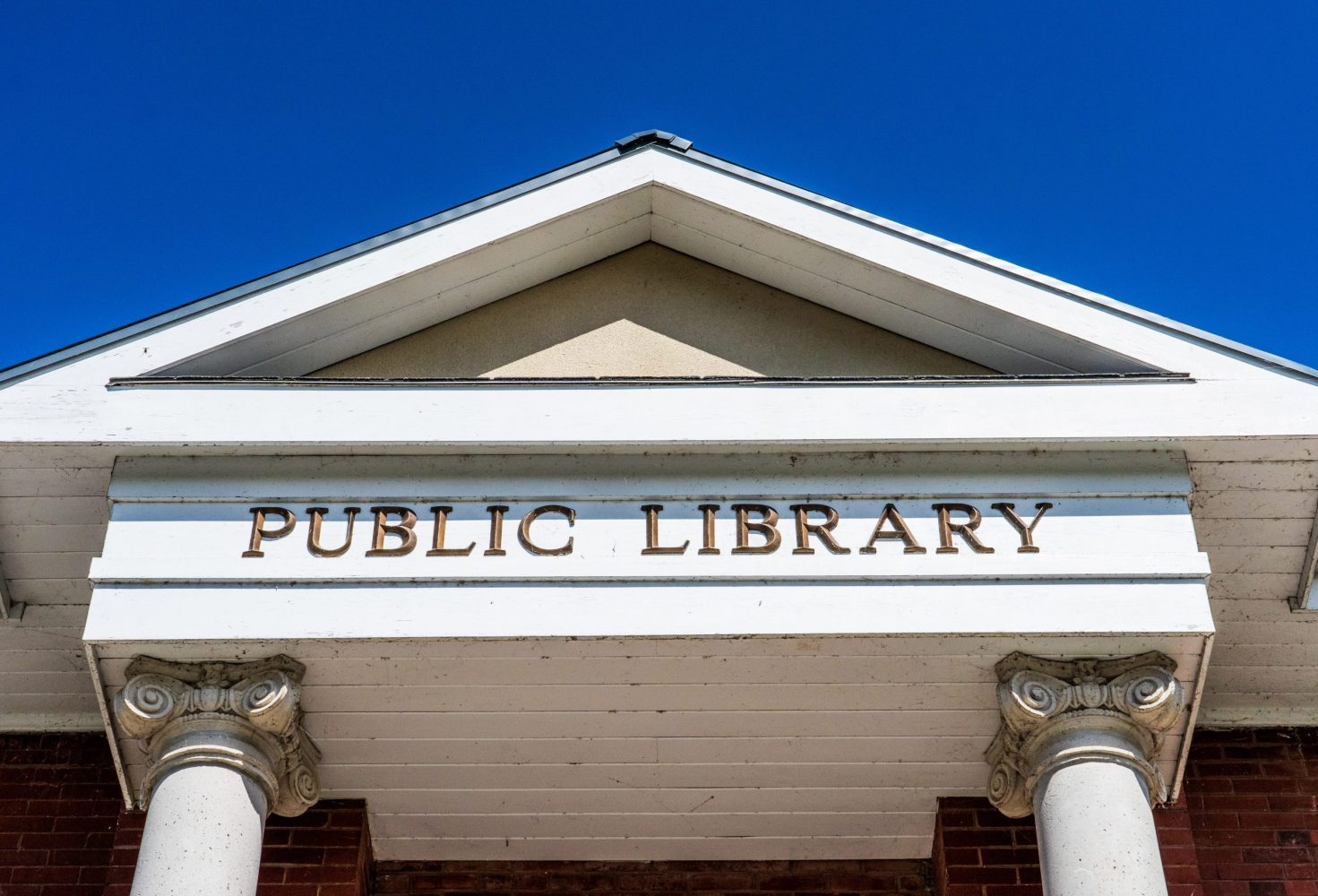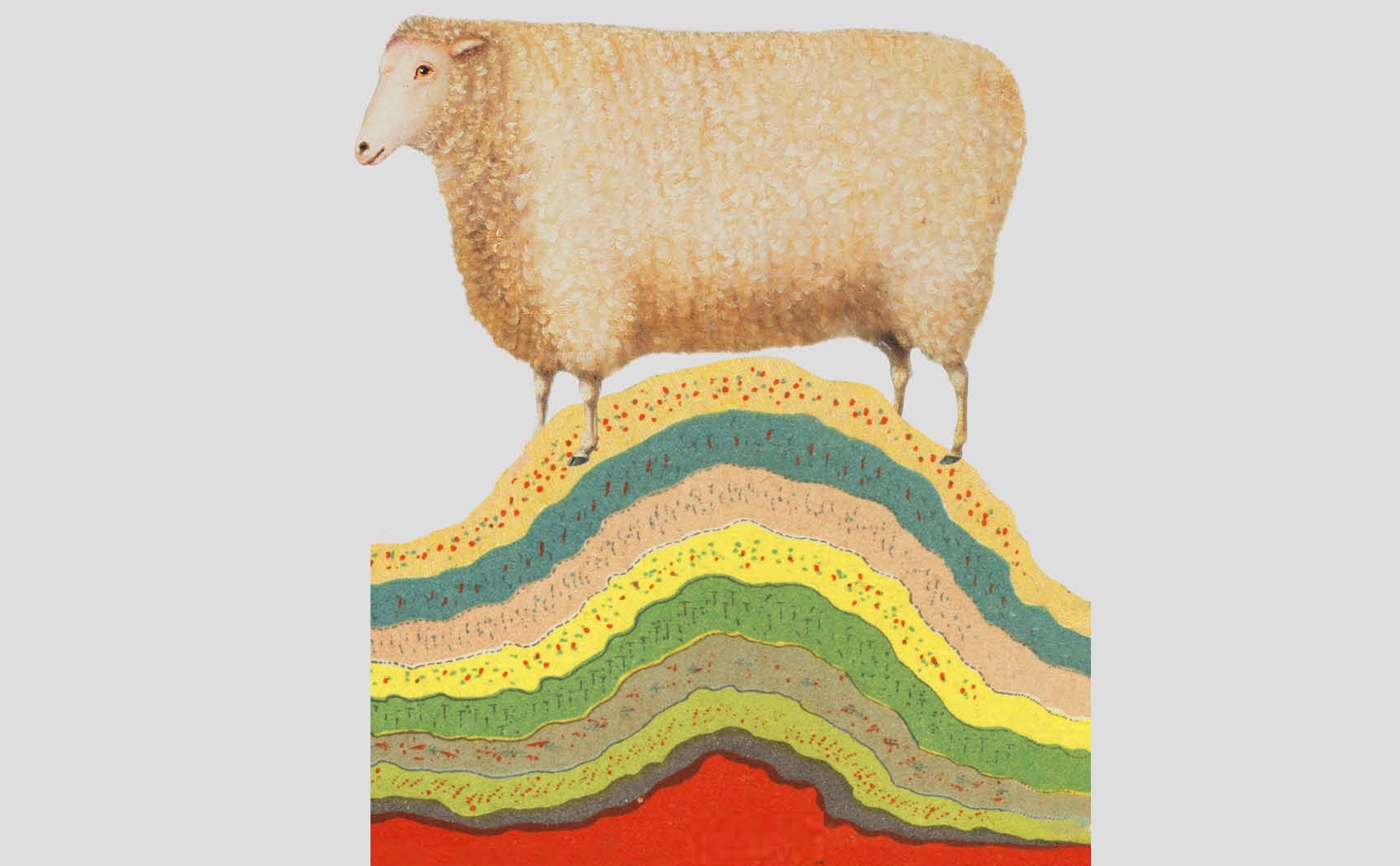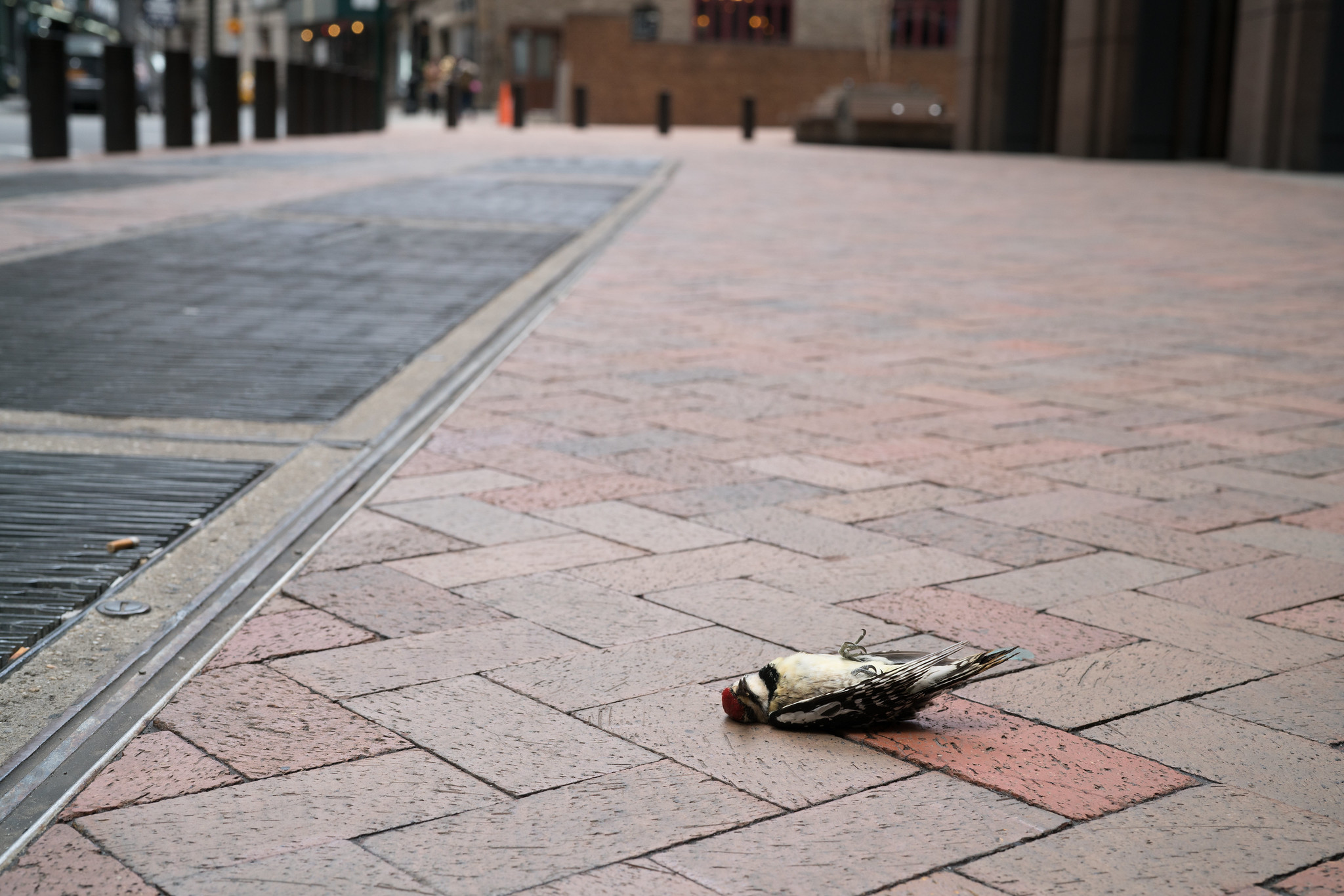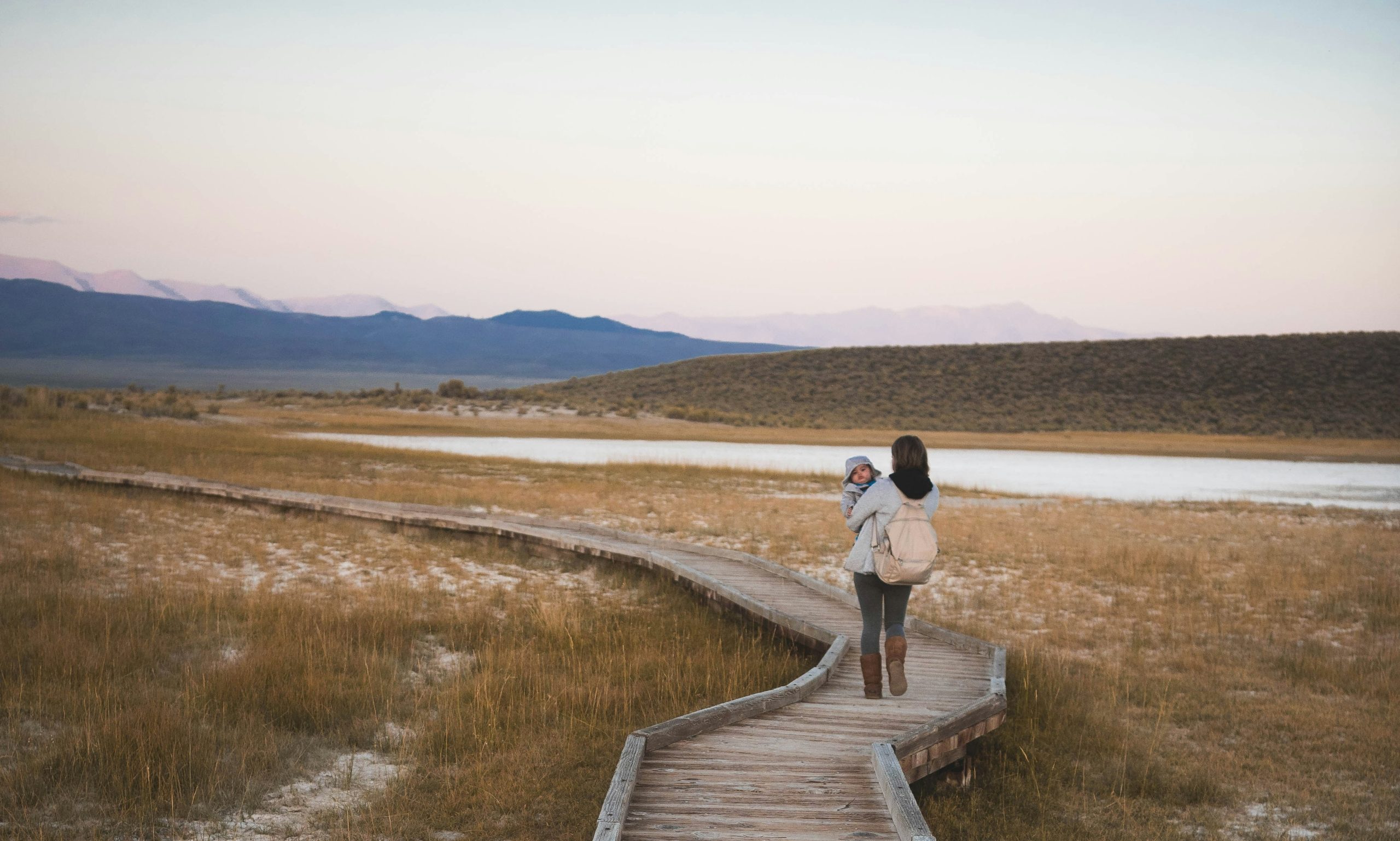Books & Culture
Being a Public Librarian Can Be Dangerous Work, Why Don’t We Acknowledge That?
A former librarian pushes against the romanticization of what libraries are and who they are for

The day of the incident it had been only me and Ms. Roberts at the circulation desk. I was one month into the job and used to calling these kinds of things “incidents” by then. The yelling was coming from the Adult Fiction section, an area with four tables that made up the far-right corner of the larger square that was the library. Walls of tall bookcases made it into its own square, and it was impossible to see into it unless you were standing right within it. Only one chair, tucked in between the emergency exit and a single bookcase—the Fiction A’s—could be seen from the circulation desk. A few weeks earlier, a patron had overdosed while sitting in it, his skin already blue by the time someone at the desk noticed and called 911.
I knew it was Christian who was yelling before I reached him. He was a regular patron who kept his cell phone in a holster on his hip and a Bluetooth piece in his ear, loudly taking frequent phone calls until an employee would tell him to hang up or take it outside. The other two people sitting at the table with him kept their eyes fixed down as he yelled up at an older woman who was standing near him. I recognized her by the long flowing dress and colorful silk headscarf she always wore, but I did not know her name. The woman often annoyed other patrons by asking to borrow items from them—a cell phone, a tissue, a bit of their food—and would hover until she got a yes. Whatever she had asked him for that day annoyed him to a point where he had been saying “fuck you” for a while, obviously angry, but I don’t know that anyone expected what happened next.
Christian stood and used both of his hands to shove the woman backward as hard as he could. Her thin body flew into the wooden bench behind her and her head audibly cracked on contact before she rolled to the floor.
I instantly started to yell. “Out! Out! Get out!”
The other patrons finally looked up, most of them staring at me. I was the woman with pink hair, the newest hire who was usually the most patient and friendly at the circulation desk, yet here I was now, angry and yelling.
How many times had I been called a bitch that week? Five times? Ten?
Christian turned toward me, shouting how he’d done nothing and I didn’t know shit. Spit was flying from his mouth. Two patrons I didn’t know were cradling the woman’s head as she lay sprawled out on the floor next to the bench. I tried to check for blood while simultaneously watching Christian.
“Bitch, you don’t fucking know me,” he said, this time pointing two fingers in my face. “I’ll be waiting for you after your shift. I’ll be right outside.” He kept jabbing the air with his fingers, closer and closer to my face.
How many times had I been called a bitch that week? Five times? Ten? I knew meeting aggression with aggression rarely ended well, but here I was. Christian yelled and I yelled back and we moved toward the exit. The incident reminded me of one from many years ago when I was in high school. I had dated someone who tried to attack me outside a party a few weeks after we broke up as I was waiting in the back seat of a two-door Pontiac Sunfire while friends went inside to check if the coast was clear for me to come in. We had all been invited, but Stew did not want me anywhere near him if I wasn’t “his.” I had not expected what happened next then, either, which was that he came flying out of the front door of the house toward the car. I scrambled to reach for the window crank of the driver’s door from the back seat, but his fists came in at me anyway. Two of his fellow football players were close behind and pulled him off. I knew that Stew was capable of violence, but I hadn’t expected he would turn it on me. I felt the same way about Christian and a few other regulars at Northwest One. There was always this state of waiting to see.
Three of my coworkers had appeared from the back room and shadowed Christian and me silently, prepared to intervene if necessary. They could see I had snapped. Each one of them had, too, but this was my first time. Christian was long gone before we had a chance to discuss calling Library Police, and he was miles away by the time they finally arrived. But he kept his word to me for the next two days: at the end of my shifts, he was just across the street, standing, waiting, watching. On the third day, he followed me and two coworkers on a mile-long walk to a restaurant, keeping pace on the opposite side of the street. When I finally looked over, he was staring back at me.
Libraries are often referred to in warm language: safe place, sanctuary, freedom granting, for all. There is the famous Jorge Luis Borges quote: “I have always imagined that Paradise will be a kind of library.” And similar sentiments from Albert Einstein: “The only thing that you absolutely have to know, is the location of the library.” From Ray Bradbury: “Without libraries what have we? We have no past and no future.” From Judy Blume: “I think of libraries as safe havens for intellectual freedom. I think of how many times I’ve been told about a librarian who saved a life by offering the right book at the right time.” And Margaret Atwood: “There is not such a cradle of democracy upon the earth as the Free Public Library.”
Warm understandings of libraries have long permeated our media as well: the Breakfast Club members find comradery in their school library, Hermione and Harry and Ron discover life-saving solutions and spells at the Hogwarts Library, Belle finds sanctuary and a sense of Beast’s humanity in his private library, Mrs. Phelps offers Matilda the beginning of her exit from an abusive home, the cast of The Magicians frequent the library for answers and deep conversations, and so on.
There remains a perplexing assumption that libraries are social equalizers and asylums from the rest of the world in ways that no other American institutions are.
There is nothing incorrect about any of these beautiful assertions or imagined scenarios. But there remains a somewhat perplexing overarching social assumption that libraries are social equalizers and asylums from the rest of the world in ways that no other American institutions quite are—that libraries are good, as opposed to the bad people sometimes ascribe to museums and other shared spaces that have been criticized for being elitist and otherwise exclusionary or fraught.
When I tell someone for the first time that I was a librarian for seven years, their face usually lights up. Sometimes they want to tell me about their childhood library, or the last time they went to their local branch, or ask if I’ve read a particular book. Sometimes they just want to know what the work was really like. Was it quiet all the time? Did I read books all day? Did I have to go to school for that? Do I have glasses? Did I shhh?
They often tell me, last, about how much they love libraries. I tell them I do too.
And I do.
But I have stood in these conversations knowing that there are glaring omissions from their questions about, and their understandings of, libraries. This leaves me with the same general dilemma again and again: do I tell them something a little truer?
When I tell someone for the first time that I was a librarian for seven years, their face usually lights up.
In my own social circles, I don’t know anyone who doesn’t like libraries, even if they haven’t patronized one in decades. According to the American Library Association’s (ALA) State of America’s Libraries Report 2019, there are more public libraries—16,568—in the United States than Starbucks cafés—14,606. 100 percent of those public libraries provide Wi-Fi and nearly 100 percent offer no-fee access to computers. The ALA’s 2020 report notes that “the popularity of libraries is surging” and cites a 2019 Gallup survey poll that visiting the library is the most common cultural activity Americans engage in “by far,” with US adults taking an average of 10.5 trips to the library, “a frequency that exceeded their participation in eight other common leisure activities. Americans attended live music or theatrical events and visited national or historic parks roughly four times a year on average and visited museums and gambling casinos 2.5 times annually.”
The State of America’s Libraries reports are released during National Library Week every April as annual summaries of library trends, and they include statistics and issues affecting all types of libraries, including public ones. The State of America’s Libraries Report 2019 notably states that public libraries “are a microcosm of the larger society. They play an important and unique role in the communities that they serve and provide an inclusive environment where all are treated with respect and dignity. No longer just places for books, our public libraries serve as a lifeline for some of our nation’s most vulnerable communities.” The report goes on to note that “homelessness and addiction are two of the most difficult issues facing communities today. They often go hand in hand.”
The ALA notes on its website that “[unhoused people] face a wide range of challenges including lack of affordable housing, employment opportunities, healthcare, and other needed services. As many public librarians know, with no safety net to speak of, homeless citizens often turn to the library for help.” It is common for libraries to be patronized by marginalized and vulnerable groups, whether they are in rural, suburban, or city settings, for a wide variety of reasons including free access to a temperature-controlled environment, clean drinking water, and Wi-Fi, and computers—because, of course, all public libraries are shared spaces. They do not exclude anyone, including people suffering from addiction, trauma, mental health struggles, and other internal, and often externalized, battles.
While library usage remains statistically prevalent and on the rise, I continue to be interested in the question of by whom, where, and for what reasons.
That unhoused people regularly patronize libraries has become more commonly known in recent years and is a fact that impacts some library users’ desire to visit certain branches in their local library systems. Although there is no statistic on this, my own experience working within the DC Public Library system showed me time and again that the majority of middle- and upper-class library patrons who wanted to sit and work at a library preferred to visit branches in certain neighborhoods around the District over others, even if it was not their closest neighborhood branch. These same people would comfortably pick up holds from their local branch because it did not require them to linger in the space, but they opted for other libraries if they wanted to stay for longer than a few minutes. I have close friends in New York City, Portland, Seattle, Bethlehem, Buffalo, and DC who have similar practices and preferences. Some of them take their children to library story times as well, but again, there are branches in their local library systems where they would choose not to take their children and where they would prefer not to pick up books or try to work, whether that is something they can comfortably admit or not. It is obvious through data that libraries are still regularly used all over the country by people from all races and socioeconomic statuses, but the reasons they use libraries differ greatly. While library usage remains statistically prevalent and on the rise, I continue to be interested in the question of by whom, where, and for what reasons.
Two weeks before Christian assaulted the woman, I had been in the Adult Fiction area reshelving books. The collection was often disorganized—a side effect not so much of being understaffed, but of staff never agreeing whose job it was to reshelve—and the disarray often doubled how long it took to find the correct place for books on the shelf. Generally, I didn’t mind reshelving, but I tried to never linger in the area. Male coworkers had warned me early on not to—female employees were particularly vulnerable back there. If something was going to go wrong, it was going to go wrong in the Adult Fiction area.
I was on my tiptoes that day, impatiently searching spines for the letters PAT when I heard him from behind me.
“There’s my White girl with a booty.”
I had spent most of my adult life trying to avoid this exact situation: feeling cornered and vulnerable, especially around men.
I went momentarily stiff and then shrank the only way I could shrink in the moment—back down to flat feet, arms crossed protectively over my chest, book pinned against my sternum with my pointer finger hooked slightly on the plastic of the spine label, pressing my flesh into it. I had spent most of my adult life trying to avoid this exact situation: feeling cornered and vulnerable, especially around men. There was laughter—three, four, five male echoes of it—and I moved my body sideways instead of turning around to look. I tossed the James Patterson paperback on an otherwise emptied cart and beelined to our small back work office.
This was different from the times I had been harassed at the circulation desk. The circ desk was familiar territory and its height gave me a sense of having some physical boundary. Christian had made flirtatious comments there before, leaning against the desk to tell me how nice my hair was and then, a few days later, asking me if I had a boyfriend, but nothing this inappropriate, demeaning, and public. Our previous interactions were harmless enough—the kind of conversations I’d had with hundreds of men while sitting on a barstool before a friend arrived for happy hour or standing waiting for a delayed Metro train. I could deflect—answer in short replies, busy myself with organizing something on the desk’s surface, respond that I needed to get back to my work, show them the subway face I had developed while living in New York City—but this was my workplace, and Christian was someone I knew I would be seeing on a regular basis. Northwest One was a weekly, if not daily, part of his life.
When I got into the back office my manager, Frank, was sitting in front of his two computers. “I just want to tell you about something that just happened,” I began, speaking to his back. It was the first time I had ever come to him like this. He knew by my voice that I was angry, and when he turned, he saw my face was red. Frank arranged himself into what I had started to think of as his “listening pose”: direct eye contact, square shoulders, softened face. Neutral. Listening.
“Christian made a comment while I was trying to reshelve books. This isn’t the first time he’s made me uncomfortable and I’m not really sure what to do at this point.”
When I explain the reality of the work… I push directly against the romanticization of what libraries are and who they are for.
I was hoping Frank would know what to do. He had been working in public libraries for almost ten years and I had very little experience at that point, having recently transitioned from six years in elementary school libraries.
“What did he say?”
I repeated the line and Frank frowned and nodded sympathetically. “You know, in his culture, that’s a compliment.”
I stood there silently. Christian was a Latino man. Frank was White. I didn’t know how to respond to the comment or the fact that Frank seemed to think I simply wasn’t understanding the situation correctly. Until that moment, he had always made me feel like he empathized with the many layers of being a female employee at Northwest One. His wife was a branch manager at another library and sometimes called during her shifts, clearly upset, sometimes crying. Caller ID on the government phones showed the name of her branch and if I saw the call come in I tried to answer before it rang more than a few times, thinking how each ring must have made her feel more helpless and alone. I’d heard Frank be gentle and understanding with her on these calls and so I stood silent, hopeful, still, waiting for what he might say next.
“I can try to go talk to him if you’d like, but… ” He trailed off. I blinked and stood for a few more moments before I told Frank some thing along the lines of “OK, never mind,” and went back out onto the library floor. Years of similar situations—at school, at work, in private and public—passed through my mind, but I compartmentalized them and sat down at a chair behind the circulation desk. Christian stayed where he was.
With years of distance, I now more fully understand there is another story here of Christian’s life. In some ways, Frank had been correct. There was a difference in our lived experiences. Christian had learned to respond to both affronts and minor annoyances with violence, and there is no calm or peaceful way to learn that. He acted, spoke, and behaved in ways that made sense to him. I did the same, trying to maintain the relative sense of safety I had established in my adult life, feeling like I deserved at least that. If we had anything in common, it was this—a desire to protect ourselves.
These incidents with Christian were two of hundreds of incidents with dozens of patrons in the nine months that I worked at Northwest One. In all of them, there was self-protection at play for everyone involved. It was a shared experience I could find no comfort in. Our common ground came from operating in a shared environment that was unsafe. There was never any reliable way to predict what might happen next at Northwest One, no matter how hard I, or anyone else, tried to. And when things inevitably came to a head, there was no reliable plan of response in place either.
This has become a common story of libraries and library work in America.
I have upset people, from library administrators and other librarians to journalists and close friends, by candidly discussing my job as a librarian at the Northwest One branch of the Washington, DC, public library system. When I explain the reality of the work and the many ways it embodies the most fractured pieces of American society and culture, I push directly against the romanticization of what libraries are and who they are for. It is complicated to hear and it is also complicated to share. But as with most broadly accepted accounts of American history and culture, there are extensive misunderstandings and omissions from the story that have become especially difficult to sit with.
We want, and need, institutions that embody hope—now more than ever. Public libraries, maybe above all else, have a long history of providing just that. And there is deep and resounding hope in libraries and library work. But if that hope expects to grow and evolve, it is essential that a full and accurate story be told.
Famed astronomer and astrophysicist Carl Sagan hits a little closer to a more complete truth about libraries: “The health of our civilization, the depth of our awareness about the underpinnings of our culture and our concern for the future can all be tested by how well we support our libraries.”
To continue to laud libraries and librarians as ever-present equalizers and providers of some version of magic reduces them to something negligible.
Libraries are resolutely radical institutions. They are free to use and open to the public, spaces that demand nothing from you to enter and nothing for you to stay. No exchange of money occurs between library user and library, save for overdue book fees, which are becoming more and more obsolete. Libraries are sanctuaries for the mind, body, and spirit. They are repositories of language, literature, community care, and human growth. And they are also places of objectification, racism, sexual assault, and other human atrocities. They are embodiments of our history and culture, for better, and also for worse.
It can be uncomfortable to think of libraries as social institutions that plainly tell the many and layered stories of racism, classism, and deep rooted neglect of marginalized and vulnerable populations in our communities and across our nation. It is perhaps even more uncomfortable to think of libraries as places that house specific and horrifying incidents of trauma and violence. But to continue to laud libraries and librarians as ever-present equalizers and providers of some version of magic reduces them to something wistfully—and sometimes dangerously—negligible. It also inevitably prevents them from making meaningful changes and progress. We can continue to broadly (and rightly) accept that libraries are open to everyone in society and deserve praise for what they embody. But to keep doing so from a removed view—and often from the brief and incomplete perspectives of the most advantaged people—is a disservice to the true scope of the work libraries and librarians are doing. Libraries have existed as far back as the Library of Ashurbanipal in the 7th century bc and as early as Benjamin Franklin’s Library Company in colonial Philadelphia. They have been here, housing information, stories, answers, and potential answers—and not just within their individual stacks and collections, but in their history, their marrow, their library workers, and their patrons. Without an understanding of a more complete history of the American public library it is impossible to accurately and productively discuss their current state. It is impossible to move forward without meaningfully and purposefully looking back. This kind of reflection, the kind born from inquiry and research and telling, from deep, honest reckoning, cannot be fully realized without examining it more closely. I think of Sagan’s words often: “the depth of our awareness about the underpinnings of our culture.” A shallow depth, one with an insufficient or incomplete awareness and understanding, has led to the problematic idea of libraries as institutions that allow all people to pull themselves up by their metaphorical bootstraps.
I can’t think of a better metaphor for our country—where it has been, where it is now, and where it is headed or could be headed—than in the story of our libraries. Libraries hold possibilities and answers for our future in ways no other institutions do. I believe this as a former librarian trained in the gathering, assessment, and accessibility of information, and also as a writer who seeks to put it all together in a cohesive narrative. I believe this as a human being, to my core. In the space I have created since leaving library work for good, in the parts of me that are most calm, observant, and present.
Excerpt from Overdue: Reckoning with the Public Library by Amanda Oliver, published by Chicago Review Press.









